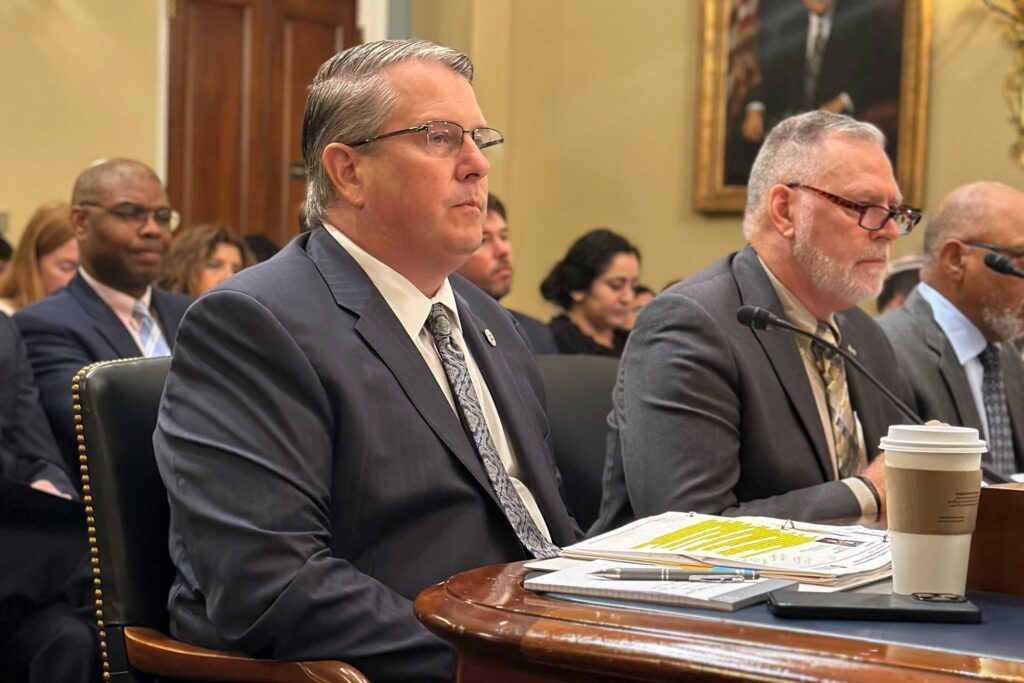
The federal permitting process has become so slow and unworkable that it is harming efforts by electric cooperatives to meet rising demand for electricity and high-speed internet service, a Georgia co-op leader told a House panel Wednesday.
“The process for conducting federal environmental reviews should be modernized for all projects, regardless of fuel source or type, to give more certainty as we build for the future and ensure electric co-ops can continue to provide safe, reliable and affordable electricity to American families and businesses,” Chip Jakins, CEO of Jackson Electric Membership Corp. in Jefferson, Georgia, told members of the House Natural Resources Committee at a hearing on permitting reform legislation.
“As this committee works to develop the next steps forward in permitting reform, electric cooperatives believe there are great opportunities to make improvements to [the National Environmental Policy Act] and to address litigation that unnecessarily delays these projects.”
Electric co-ops are subject to the NEPA review process when they apply for federal permits or seek federal financing to build electric and broadband infrastructure to serve their consumer-members. Co-ops often must obtain permits to do even such routine activities as vegetation management, which is crucial to helping prevent wildfires.
As it now stands, Jakins testified, “the federal permitting process is not keeping pace with rising demand for electricity and broadband service in our everyday lives.”
Jakins asked lawmakers to consider these four changes to NEPA:
- Strengthen 2023 reforms passed by Congress in the Fiscal Responsibility Act. That law established firm time limits for NEPA reviews and broadened the use of “categorial exclusions” for projects that don’t have significant environmental impacts. However, the Council on Environmental Quality recently issued “phase two” NEPA regulations that undermine those reforms, Jakins said.
- Limit unnecessary litigation of NEPA reviews. To prevent costly delays in the permitting process, Congress should establish reasonable time limits for filing lawsuits after a final agency decision, Jakins said. Parties wishing to challenge a NEPA review should raise their concerns during the public comment period to ensure that agencies have a chance to address them.
- Ensure that NEPA remains project neutral. NEPA’s goal is to ensure that federal agencies carefully consider the significant environmental impacts of their decisions. Congress should ensure that NEPA, as a procedural statute, does not favor one particular outcome and that the NEPA process does not elevate certain environmental considerations above others, Jakins said.
- Clarify the scope of NEPA reviews. Congress took meaningful steps to narrow the scope of NEPA reviews through the reforms it enacted last year and should make further amendments to clarify that federal agencies must only analyze environmental impacts that are within their jurisdiction, Jakins said. NRECA recently filed an amicus brief urging the Supreme Court to clarify NEPA’s limits.
Erin Kelly is a staff writer for NRECA.